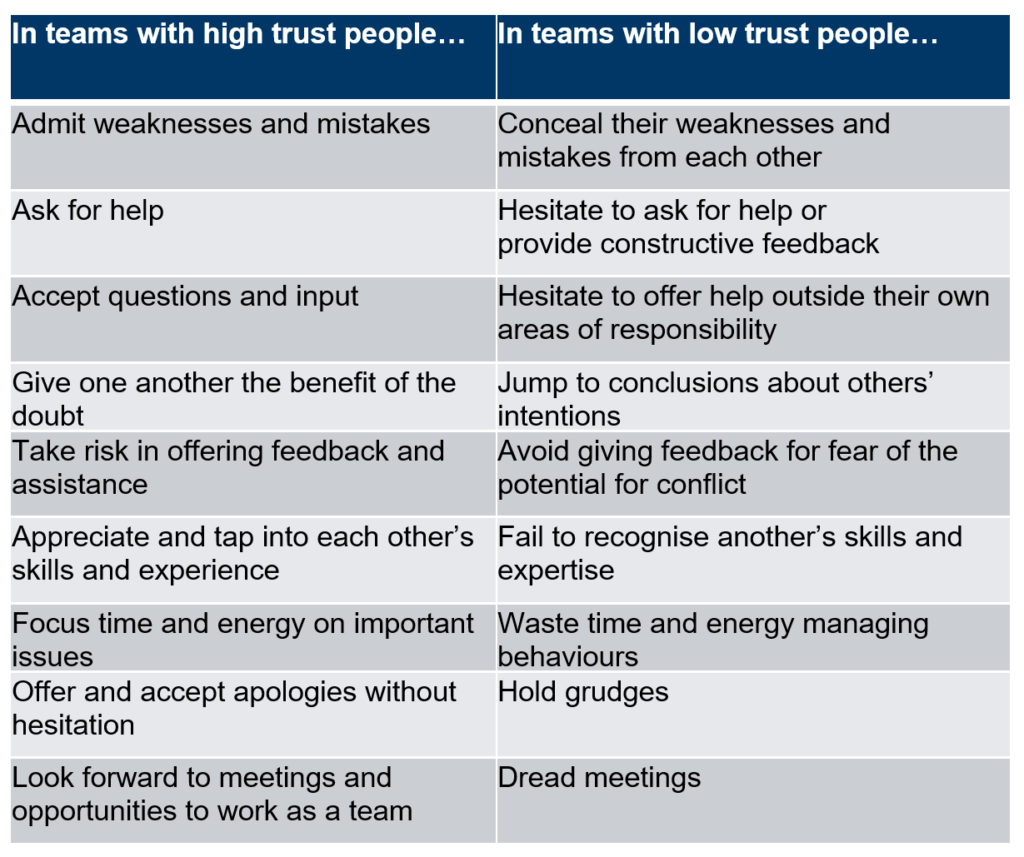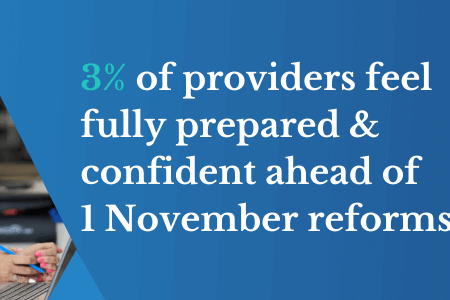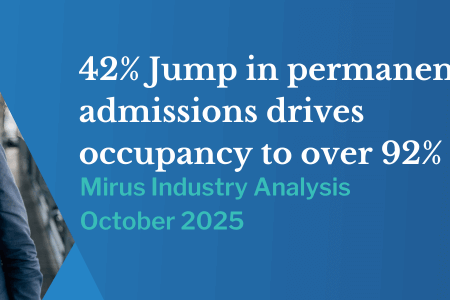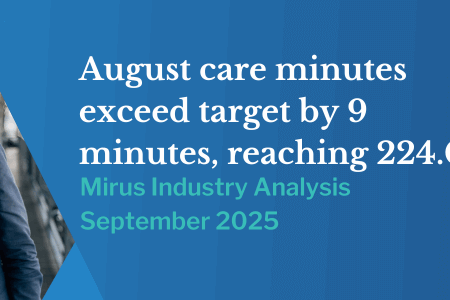The Trust Series: How trust affects productivity and effectiveness within the organisation
March 16, 2021 | Workforce Management

“Trust is essentially the predictive understanding of another’s behavior. The link between trust and psychological safety is based on my prediction of your behavior based on your pattern of behavior. If I can predict that you won’t embarrass, punish, or humiliate me when I’m interacting with you and others in a social setting, I’m much more likely to engage, participate, and release my discretionary efforts. If I don’t trust that you will keep me safe, that lack of trust will trigger my self-censoring instinct and I’ll play it safe and manage my own personal risk.“
Timothy R. Clark, CEO of LeaderFactor
Intuitively, senior leadership circles tend to bifurcate trust and results and revenue. However, they are inextricably linked.
Teams simply are unable to reach the optimum levels of productivity and effectiveness without established levels of trust, as demonstrated in the team’s behavioural matrix below:

How do you evaluate your team’s trust level? What are your team’s pre-existing trust building exercises? Are there areas left to be desired that you wish to improve, or is your team on track for success?
Other blogs in The Trust Series:
- Trust is the link to innovation and morale
- Building trust at work
- The importance of trust in aged care in 2021
- People + Technology = Trust
Want to find out more? Please get in touch with Tom.
Tom Murphy is Head of Workforce Management at Mirus Australia and with his team, they are optimising staff coverage to the care needs of a provider’s residents, minimising the complexity of interpreting awards and integrating technology for improved financial sustainability in aged care.
Strength in numbers. Is the short answer. Please get in touch with us to find out more about Mirus Works! or please connect with Tom via LinkedIn


